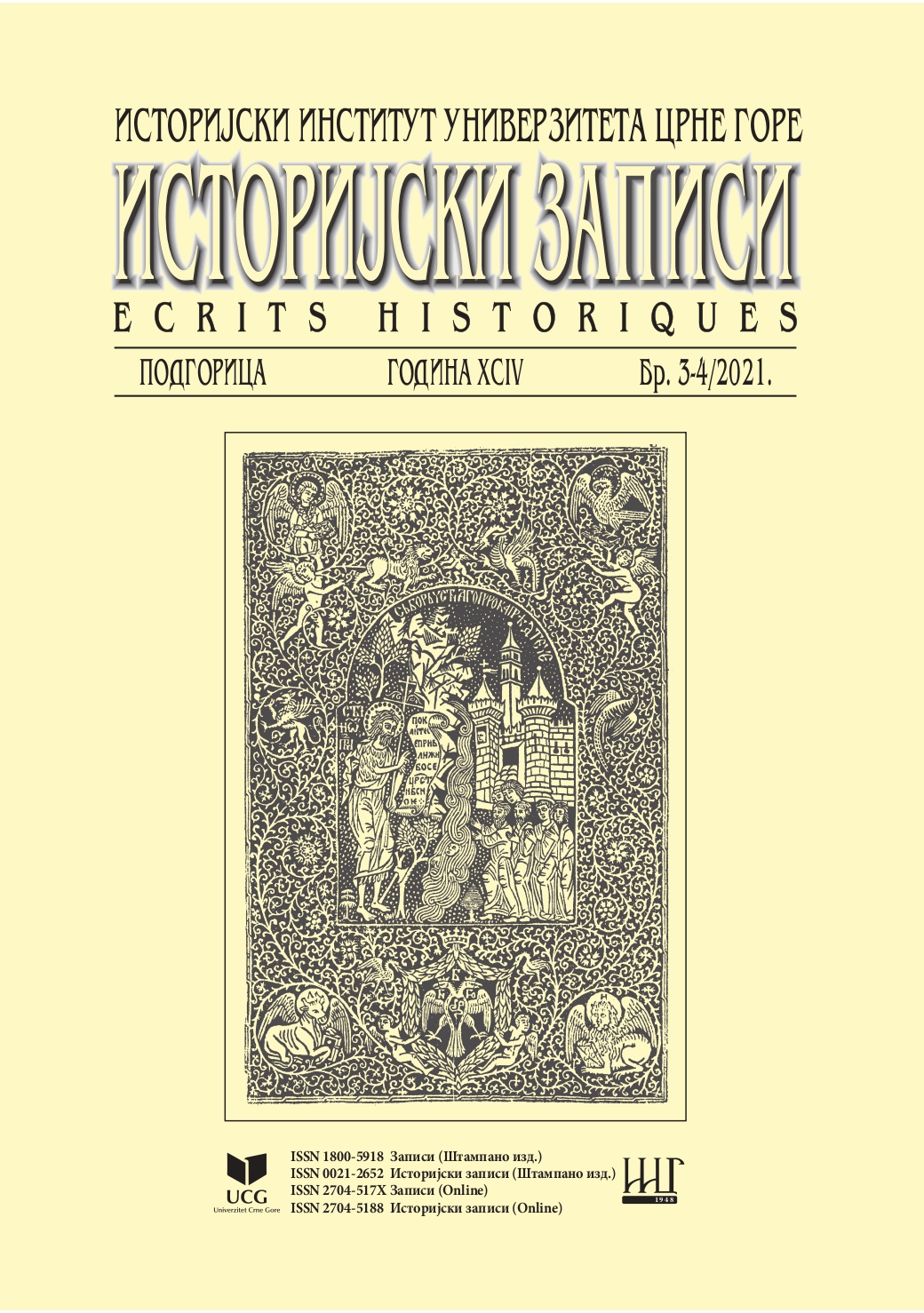Glinski kraj 1938-1941. Strah i zabrinutost Srba za sigurnost i odnos prema vojsci i državi
GLINA COUNTY IN CROATIA 1938-1941: SERBS’ FEAR AND CONCERN FOR SECURITY AND ATTITUDE TOWARDS THE ARMY AND THE YUGOSLAV STATE
Author(s): Mile BjelajacSubject(s): Interwar Period (1920 - 1939), Fascism, Nazism and WW II
Published by: Историјски институт Црне Горe
Keywords: Glina;Kingdom of Yugoslavia; Banovina Croatia; Serbs in Croatia; Yugoslav Army; Croat Peasant Party (CPS); Ustaša Movement; Mirko Puk;
Summary/Abstract: In this paper, the author gives an overview of the political situation in Banija and the regions of the Banovina Savska and Primorska and since August 1939 the Banovina of Croatia, areas where the Serbian and Croatian populations were mixed. Residents, mostly Serbs and Yugoslav loyalists of Glina and the wider area were deeply concerned about the deteriorating trends in interethnic relations, which are characterized by open threats, pressure and aggression aimed at political victory and secession of Croatia from Yugoslavia. The situation worsened after 1936 due to the strengthening of the Croatian Peasant and Civil Guard. The establishment of the Banovina of Croatia, intended to calm tensions, contributed instead to the radicalization of the situation. The Serb and Yugoslav affiliated population followed the situation with understandable concern, which only worsened as the Axis Powers have accomplished their goals in Europe. The reports of the civilian authorities, the gendarmerie and the army are full of the facts and testimonies about the situation and gloomy predictions if nothing would be done. Military and defense activities were sabotaged not only by the Frankists but also by the very top of the CPP (HSS). The creators of the Agreement (1939) on the Serbian side were deeply disappointed and felt betrayed. Newspapers and brochures are spread and read, retold too. That could only fueled mistrust and concerns, even fears. The loyal attitude of the SDS in the coalition with the HSS, as well as the calls for solidarity and cooperation from the part of local representatives of the ruling JRZ, did not reverse the increasingly radical attitudes of the HSS and the illegal Frankists. The events in April and May 1941 showed that the fears were justified.
Journal: Историјски записи
- Issue Year: 2021
- Issue No: 3-4
- Page Range: 79-99
- Page Count: 21
- Language: Serbian

